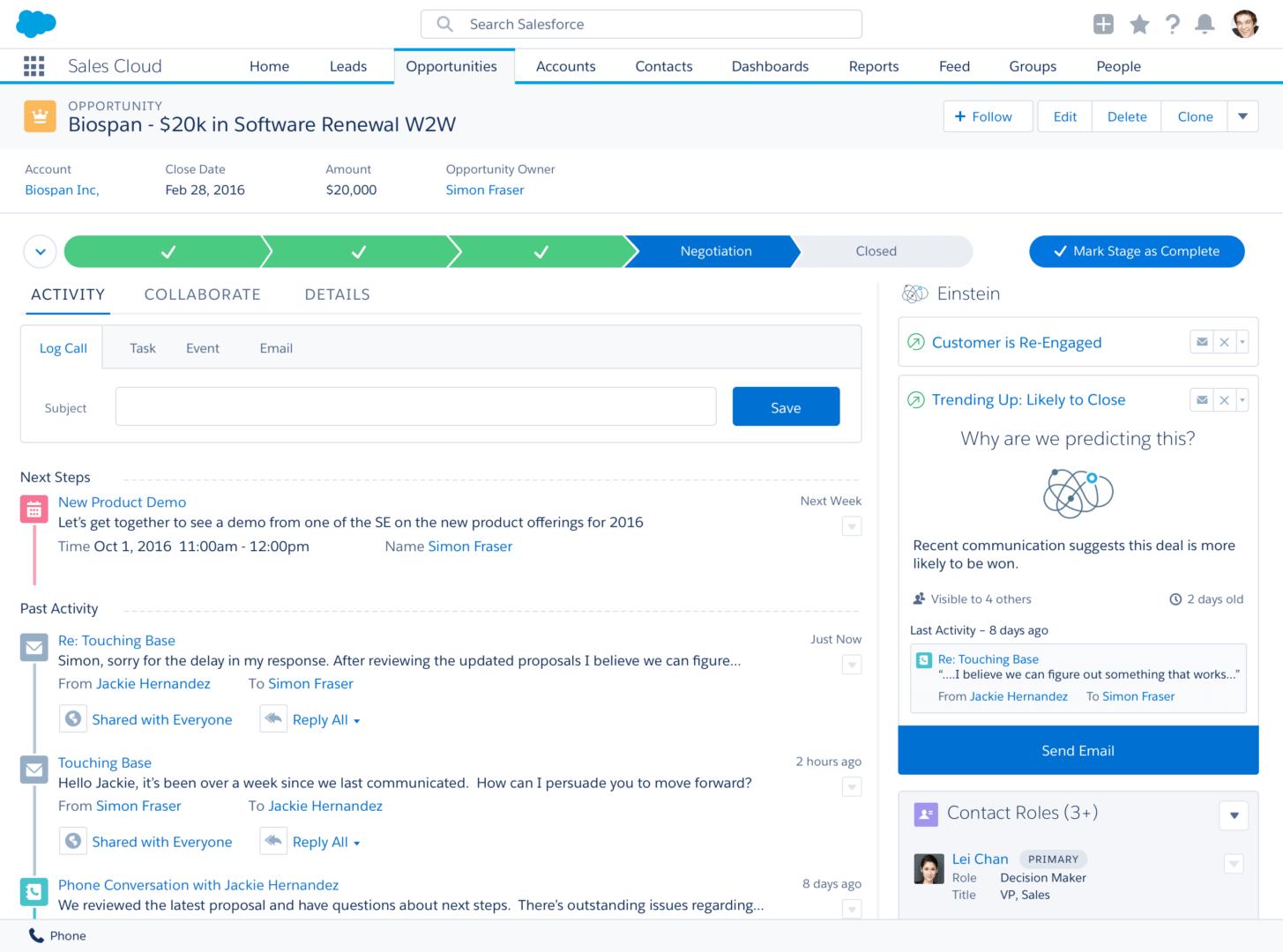
Salesforce Einstein & Data Cloud: Complete Buyer's Guide
Enterprise-grade convergence of AI-powered customer intelligence and unified data activation
Salesforce Einstein & Data Cloud represents the enterprise-grade convergence of AI-powered customer intelligence and unified data activation, positioning itself as what Salesforce terms a "hyperscale data engine" for Fortune 500 marketing operations[118][131].
Market Position & Maturity
Market Standing
Salesforce Einstein and Data Cloud occupy a dominant position within the enterprise customer data platform market, leveraging Salesforce's established CRM leadership to create competitive advantages in unified customer intelligence[131][132].
Company Maturity
The platform benefits from Salesforce's $31+ billion annual revenue and Fortune 500 customer base, providing stability and long-term viability that smaller AI vendors cannot match.
Growth Trajectory
The company's growth trajectory reflects broader market expansion, with the AI marketing sector projected to reach $214 billion by 2033 from $20 billion in 2023[120][125].
Industry Recognition
Industry recognition positions Salesforce as a leader in customer data platform capabilities, though specific 2025 analyst positioning requires current verification as previous reports may be outdated[131].
Strategic Partnerships
Strategic partnerships with major cloud providers including AWS, Google Cloud, and Microsoft Azure enable flexible deployment options while maintaining data residency compliance for global enterprises[118][129].
Longevity Assessment
Longevity assessment strongly favors Salesforce given the company's market leadership, financial stability, and continued R&D investment in AI capabilities.
Proof of Capabilities
Customer Evidence
HearX Group achieved 90% email deliverability by integrating Sales Cloud, Google Analytics, and advertising platforms to build behavior-triggered segments[128].
Quantified Outcomes
The implementation consolidated 266 million disconnected profiles into 141 million unified customer views while generating 5x ROAS for AI-powered campaigns and identifying $25M in sales pipeline opportunities[129].
Case Study Analysis
Salesforce's internal deployment documented 60% increases in marketing lead revenue and 85% case resolution rates, though these vendor-provided metrics require independent validation[129].
Market Validation
Market adoption metrics reflect strong enterprise acceptance, with implementation timelines typically requiring 3-6 months for data mapping and harmonization[119][127][132].
Competitive Wins
Competitive displacement evidence emerges through customer migrations from standalone marketing AI solutions to Salesforce's unified approach[127][133].
Reference Customers
Reference customer portfolio spans technology companies conducting account-based marketing, financial services organizations requiring complex compliance, and healthcare enterprises managing sensitive customer data[128][129][132].
AI Technology
Salesforce Einstein and Data Cloud operate through a sophisticated three-layer AI architecture that distinguishes the platform from standalone marketing AI solutions[118][129][132].
Architecture
The foundation layer consists of Data Cloud's "zero-copy" integrations with Snowflake, Google Cloud, and AWS, enabling analytics without data duplication while maintaining enterprise security standards[118][129][132].
Primary Competitors
Adobe Real-Time CDP as the leading enterprise alternative, with Adobe demonstrating superior instantaneous personalization capabilities[132].
Competitive Advantages
Native Salesforce ecosystem integration that eliminates complex third-party implementations required by external CDPs[118][131].
Market Positioning
Market positioning strategy emphasizes comprehensive customer intelligence over specialized marketing AI capabilities, targeting Fortune 500 companies requiring cross-departmental data activation[131][132].
Win/Loss Scenarios
Win/loss scenarios favor Salesforce when organizations require unified customer intelligence across multiple business functions within existing Salesforce deployments[132][133].
Key Features

Pros & Cons
Use Cases
Integrations
Pricing
Featured In Articles
Comprehensive analysis of AI Audience Targeting for AI Marketing & Advertising for AI Marketing & Advertising professionals. Expert evaluation of features, pricing, and implementation.
How We Researched This Guide
About This Guide: This comprehensive analysis is based on extensive competitive intelligence and real-world implementation data from leading AI vendors. StayModern updates this guide quarterly to reflect market developments and vendor performance changes.
133+ verified sources per analysis including official documentation, customer reviews, analyst reports, and industry publications.
- • Vendor documentation & whitepapers
- • Customer testimonials & case studies
- • Third-party analyst assessments
- • Industry benchmarking reports
Standardized assessment framework across 8 key dimensions for objective comparison.
- • Technology capabilities & architecture
- • Market position & customer evidence
- • Implementation experience & support
- • Pricing value & competitive position
Research is refreshed every 90 days to capture market changes and new vendor capabilities.
- • New product releases & features
- • Market positioning changes
- • Customer feedback integration
- • Competitive landscape shifts
Every claim is source-linked with direct citations to original materials for verification.
- • Clickable citation links
- • Original source attribution
- • Date stamps for currency
- • Quality score validation
Analysis follows systematic research protocols with consistent evaluation frameworks.
- • Standardized assessment criteria
- • Multi-source verification process
- • Consistent evaluation methodology
- • Quality assurance protocols
Buyer-focused analysis with transparent methodology and factual accuracy commitment.
- • Objective comparative analysis
- • Transparent research methodology
- • Factual accuracy commitment
- • Continuous quality improvement
Quality Commitment: If you find any inaccuracies in our analysis on this page, please contact us at research@staymodern.ai. We're committed to maintaining the highest standards of research integrity and will investigate and correct any issues promptly.